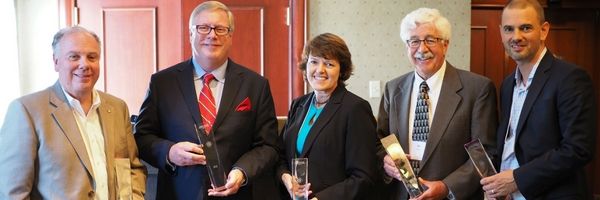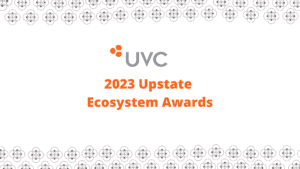Bill Jones talks about what goes into his mentoring process, how entrepreneurs can get involved with Venture Creations, and what’s on the horizon for 2017.
Bill Jones is an Upstate business mentor to emulate. Jones is the Business Development Manager at Venture Creations, Rochester Institute of Technology’s incubator for early to mid-seed stage startups. Founded in 2003, Venture Creations also features one of the most successful clean energy incubators in New York State. In addition to his work with Venture Creations, Jones is involved with the Finger Lakes Hot Spot program, the planning committee of the Rochester Venture Challenge, and the FLREDC Entrepreneurship Work Group. He was the recipient of a 2016 Venture Ecosystem award in the Magical Mentor category.
Mentoring can mean different things—how would you describe your mentoring formula as you work with startup founders at Venture Creations?
I guess I’d use two words—very active and very direct. We don’t meet every two weeks just for a catch-up. With our companies that have the most potential, I might work with them for 10 hours one week.
We don’t give everyone equal time—that may not sound fair, but, for example, starting in January, one of our requirements is that anybody who joins the incubator is eligible for the regional business plan competition. So at that point, me and a couple of others on the staff, really starting focusing on those 10 companies because we want them to score well. [At the regional business plan competition], we ended up having four out of the five finalists and our companies won first and second [place].
Are there some hard choices you have to make while mentoring? (e.g. How far do I go with this company, what happens when I see entrepreneurs going down the wrong path)
If I give you some advice, there’s a chance I could be wrong. By the time three of us [at Venture Creations] give you the same advice—it’s pretty much, you’re wrong and we’re right.
The flip side of this is we have a cliche—we can’t pick the winners but we can pick the losers. So after about six months the companies that aren’t responding, and aren’t working that hard, start to self-identify. Our entrance criteria is, I don’t want to say very loose, but it’s kind of a body of work type of thing—so we look at your management team (which may only be two people), where you are in the development process—and you get in. We’re moving to a provisional status with some of our companies now, where we’re really excited about them, but we’re going in with some concerns—so those, after a while we back off because we have a capacity problem in terms of mentoring. I’m not going to give mentoring resources to a company that’s just refusing to accept them.
What do you tell other experienced entrepreneurs to encourage them to become more plugged in as mentors?
We get people coming in—they may be RIT alums or just successful business people in the area and they’ll say “I’d like to help out.” One of the things we do sometimes is define a 20 hour project that’s important to a startup. And we say [to potential mentors], here’s a one page scope of work, the work’s going to be done over the next 30 days, here’s the deliverables—once again, it’s one page, not anything big. That way, it’s the like first date between the potential mentor and the company. And we tell both parties that they can walk away, this is not a contact, but if you’re really interested, and the company has a real need, here’s an opportunity. And some work out, some don’t. That’s our process.
What new projects will you be focusing on in 2017?
We want to become more active in major state business plan competitions. We haven’t done a good job of leveraging what the state has provided as an opportunity and based on our success in the local business plan competition, we need to put our companies out into the bigger games.
The 2017 Upstate Venture Ecosystem Awards will be held in Syracuse on September 19. Nominate your favorite ecosystem builders!



